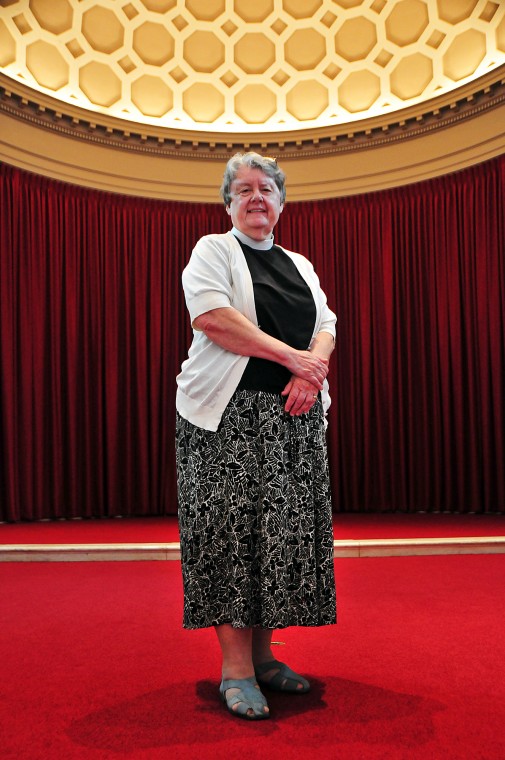
The Rev. Elizabeth Platz is the first female pastor ordained by the Lutheran Church.
For four decades, the university’s Lutheran student body has never known anything but female chaplains.
What fewer of them know is that the Rev. Elizabeth Platz was the Lutheran Church’s first-ever female pastor when she was ordained at the Memorial Chapel 40 years ago Monday.
In her cluttered office, there is no sign of Platz’s historical distinction. No plaques or diplomas cover her walls; only her white collar points to her piety. From under short, gray hair, 70-year-old “Pastor Beth” looks out with kind eyes that have witnessed years of change at this university — particularly a greater acceptance of women in leadership roles.
But throughout the past four decades, Platz said one thing has remained constant: her service to students at this university. From holding church services and Bible studies to cooking dinner for the Lutheran Student Association every Tuesday, Platz has welcomed Lutheran students and helped shape their faith and lives.
“I cannot envision a time when I will not be in some active role in ministry,” Platz said.
Platz said working with students keeps her on her toes, since her congregation is ever-changing, which, she admitted, can be challenging.
She sees many college kids go through periods of reassessment in their faith lives, she said. Her advice to them: “Know that you are loved.”
Kristen Burson, a third-year graduate student in the Lutheran Student Association, described Platz as a comforting teacher who relates well to students and fosters a strong Lutheran community at the university.
“She’s definitely this historical figure in the Church,” Burson said. “But in a day-to-day sense, it has less of an impact. She’s just Pastor Beth.”
Upon her ordination, Platz received mixed reactions, and she said some people simply could not envision a woman at the pulpit.
“Early on, just because of images and stereotypes, many people thought I was a nun,” Platz said.
While many people were angry with the church, others were supportive of her, she said, adding that reactions from other women were especially interesting.
At one women’s convention, Platz was first approached by two older women in house dresses who asked if she would leave the ministry after marrying and having children. Platz replied that if male clergymen continued to preach while raising their families, why would she not do the same?
When another group of unhappy middle-aged women came up to her, Platz asked if they disapproved of what she was doing. “It’s not you; it’s what you are. It reminds me of what I could have been,” Platz recalled the response.
Platz said even though her male colleagues at the university were supportive, others claimed she was unfit to minister because they said it was impossible that a woman could understand theology sufficiently.
“It was just hard for a number of people because, at the time, you didn’t see a lot of women in leadership positions,” she said.
Platz, a Pittsburgh native, was the first in her family to pursue higher education, majoring in ancient and medieval history at Chatham University.
“You have to understand that liberal arts women’s colleges are not about getting jobs,” she said of her chosen studies.
About halfway through her undergraduate years, Platz became interested in theology at a time when the Lutheran Theological Seminary in Gettysburg, Pa., was the only Lutheran seminary that accepted women. When she finished her bachelor’s degree, Platz was admitted there under the assumption that she would complete a two-year Christian education program without being ordained.
To the surprise of the seminary, Platz announced that she wanted to study systematic theology, and her desire to preach became stronger as she learned more. She studied for three years and received the same education as any other ordained minister.
After graduating from the seminary, Platz said she was encouraged to look for university positions, and in 1965 she landed her first full-time job as a lay chaplain in the Lutheran Campus Ministry at the university. And when the Lutheran Church began to allow women to be ordained in 1970, she was the only woman who had received the necessary education.
“Because of my degree, I had all of the education to preach, to teach and to function at the altar,” Platz said, adding her “call” to ministry was driven by her yearning to fully celebrate the sacrament of Holy Communion by ministering as an instrument of God.
Platz said that call builds on itself over the years.
“As you work with people in a caring role, that idea that you can bring people love and assurance gets stronger and stronger,” she said.
meehan@umdbk.com



